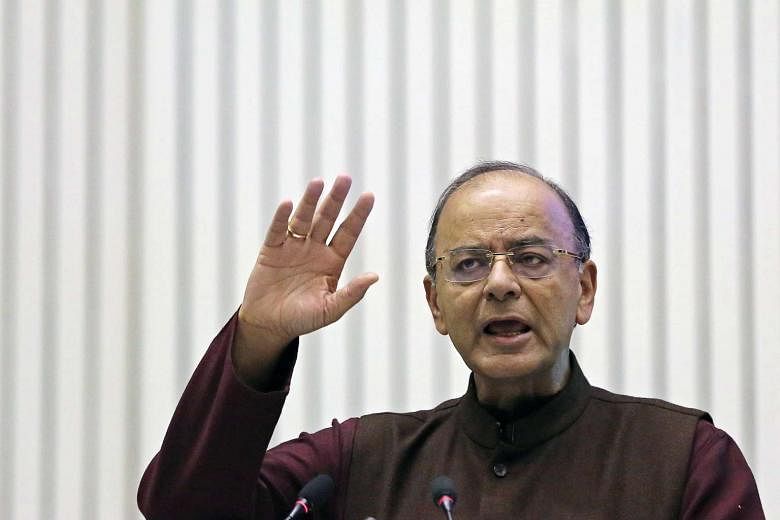In its editorial on Feb 6, the paper criticises the government's budget, claiming that it fails to meet the expectations of the people and the needs of the economy.
At a time when there was compelling need for a bold and path-breaking budget to bring relief to tens of millions of people adversely affected by demonetisation, the ruling National Democratic Alliance (NDA) government has come up with an ordinary, business-as-usual budget which fails to meet expectations of people and the needs of the economy in very critical times.
The people have been repeatedly assured of light at the end of the tunnel but they have failed to see it after the much-publicised 50 days. Even after the presentation of the budget this light is not visible.
Within the existing paradigm of development and government programmes, a significant increase in the Mahatma Gandhi National Rural Employment Guarantee Act (MGNREGA) budget would have been the most obvious - and convenient - to implement budgetary provision for providing relief to villagers as well as those urban workers who have been forced to return to their villages as a result of demonetisation-related disruption.
The available data and other evidence also points to much greater demand among people for work under MGNREGA in the aftermath of demonetisation.
But all that the budget had to offer was a very modest rise compared to the actual expenditure in the previous year, and even this modest increase may prove to be a false one once we take into account the pending wage payments.
Yet another area where it was relatively easy to provide relief was in increasing the allocation for providing pensions to elderly people from weaker sections, including widows and disabled people. This subject has been widely discussed and significant levels of help have been found to be within manageable limits of fiscal options. A few states have even been able to make significant breakthroughs on their own.
The elderly have suffered quite a lot due to demonetisation. Increasing pensions for them as well as increasing the number of beneficiaries directly would have helped them and their families. But this very practical and convenient way of providing relief has also been denied to people.
The situation was also appropriate for some well thought-out debt relief for farmers. This also has been much discussed and, learning from past mistakes, an improved version of debt-relief would have served a useful purpose in view of the recent accentuation of distress. Farmers may well be asking in the context of widely anticipated relief - if not now then can we ever expect relief from you? Attractive promises of doubling income will hardly provide consolation to farmers whose recent experience has been of increasing hardships.
Significant increases in budgetary provisions for several social sectors, particularly public health, have been long overdue and this need became all the more pressing in the aftermath of demonetisation. Improvement of public health and education can help to reduce the distress of people. But the wait for these badly needed increases has just become prolonged after the presentation of the budget for 2016-17.
This is not to say that there are no good initiatives in the budget proposals. The announcement of special campaigns against diseases like Kala azar (black fever), TB and leprosy can open up new hope as can the special scheme for villages affected by excess of fluorides and arsenic in their water supply. As leather and textiles in particular have been very adversely affected by demonetisation, the announcements of revival and relief for these industries are welcome, as are some wider announcements for helping small and medium scale units.
But these few good provisions fall short of the much wider initiatives that were needed. These initiatives were needed on the one hand for providing short-term relief to tens of millions of distressed people and on the other for bringing such stability in economy as was needed for restoration of disrupted livelihoods.
However, such hopes have been shattered by a very ordinary budget which shows no signs of even trying to live up to the special responsibilities of the present times. This attitude is in keeping with the self-denial mood of the Union Government towards the widespread distress it has inflicted on people.
Instead there are many signs and warnings that the distress and disruption caused by demonetisation may be prolonged, particularly if the external situation also gets adverse on fronts like increasing import bill of oil and reduced earnings from IT exports.
From the perspective of common people and particularly the weaker sections, therefore, there is need for increasing unity of people particularly farmers and workers for asserting and protecting their livelihood rights.
The Statesman is a member of The Straits Times media partner Asia News Network, an alliance of 22 news media entities.

